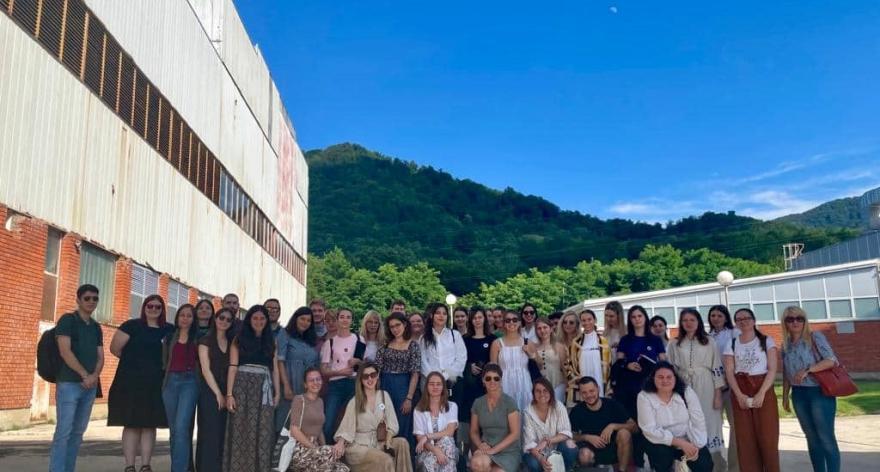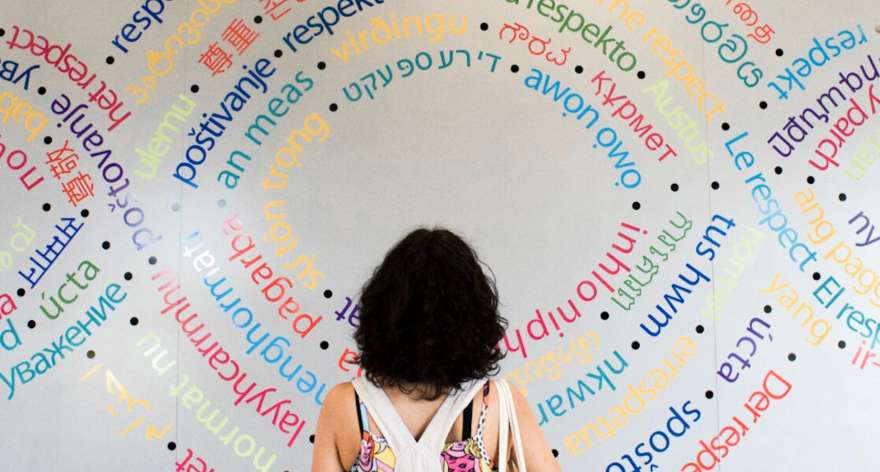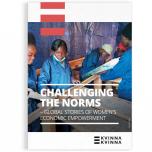Bosnia and Herzegovina
The vision of the Anna Lindh Foundation Network in Bosnia and Herzegovina (BiH) is the creation of a regional network in which all its members participate in its construction, activities and decision-making and where prerequisites are created for cooperation, openness, coordination, and satisfaction of their interests, all in accordance with compatibility with the mission of ALF.
The strengths of ALF BiH are: diversity; interdisciplinarity and relative representation in all regions of BiH.
The achievements of the network are: Continuity in its work since its initiation in 2009; a well-established structure of the network (Head of Network, Management Board, Assembly, permanent members, well designed structural documents of the Network (Agreement of the cooperation).
Directions of action and norms: Development and strengthening of international cooperation and networking, individual but also network influence towards local and regional communities and state institutions.
The orientation of the network in terms of fields of expertise and intervention is primarily reflected in the fields of culture, intercultural cooperation and exchange, as well as the provision of expertise to other networks in the field of social, cultural and intercultural dialogue.
Future plans and aspirations are to increase regional cooperation and project activities with networks in the region. The distinctive features of the network are primarily theatre cooperation and cooperation in the field of art (Sarajevo Winter, Book Fair), and Peace Festival (culture festival of young and unestablished creators in BiH), which is planned to be strengthened and expanded to the region, within the ALF network.
The identity of the ALF B&H network is: "Feel (taste) the Mediterranean"
In Bosnia and Herzegowina (BiH), the national ALF Network was established in Tuzla at its first meeting on October 1, 2009. The national Network was established at the invitation of the ALF General Secretariat in Alexandria, Egypt, and on the recommendations of prominent individuals from Italy, France and Spain. Based on the invitation, we sent out a call to organizations based in BiH to join the ALF Network, and on October 1, 2009, ORC Tuzla was selected as head of Network and head office by the members.
Today, the ALF Network in BiH connects 47 civil society organizations and institutions from more than a dozen cities and regions in the country.
Out national network is also steered by an executive board consisting of 8 members with a mandate of two years.
In our 11 years of existence, we have implemented the following activities in addition to regular meetings of Network members and participation in the activities of the international ALF:
The "Young - Responsible - Tolerant" campaign covered over 20 cities in BiH and had young activists working to distribute campaign materials (posters, leaflets and stickers) and organizing five street campaigns in Doboj, Bratunac, Brčko, Priboj and Bijeljina;
We promoted "10 Open Cities in BiH" in the fields of coexistence and multiculturalism. Within these 10 cities (Banja Luka, Bratunac, Bosanski Petrovac, Brčko, Derventa, Jablanica, Milići, Priboj, Prijedor and Tuzla), members of the Network organized public debates attended by representatives of the authorities, national minority associations and citizens.
The BiH Network participated in the selection, translation and promotion of stories from BiH for the international literary competition "Sea of words" which was organized by the European Institute of the Mediterranean (IEMed).
The youth group of ORC Tuzla, within the context of the ALF BiH Forum 2014, has hosted a series of youth workshops titled “Children in the Background”. The workshops aimed at opening interreligious and ethnic dialogues to facilitate peace messages, as well as allowing for the exchange of experiences on peace promotion, diversity and coexistence. However, the main aim was supporting the development and improvement of creative and social skills through encouragement for social activism.
Additionally, we have participated as partners in a large number of ALF inter-Network activities and in activities on project proposals by ALF member states.
Furthermore, the BiH Network is one of the main partners in the international project “Caravan Without Borders” by implementing the DRAFT Theatre Tuzla.
We also participated as partners in an Israeli-Palestinian reconciliation project organized by Combatants for Peace.
We also partnered in ALF inter-Network activities concerned with Education for Intercultural Citizenship (Facebook: ICE: Intercultural Citizenship Education).
In 2017, we participated in the Kimiyya Women Empowerment initiative, including attendance at a conference held in Naples in September 2017.


